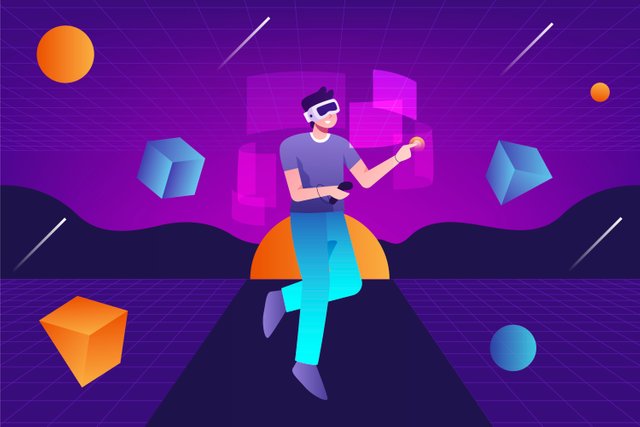
In recent years, the gaming industry has witnessed a revolutionary technology that is reshaping the way games are played and owned. Non-Fungible Tokens (NFTs) have emerged as a game-changer, bringing a new level of excitement and possibilities to the gaming world. In this article, we will delve into the fascinating world of NFTs and explore how they are transforming the gaming landscape. From their definition to their impact on ownership, trading, and in-game economies, we will uncover the reasons why NFTs have captured the attention of gamers and investors alike.
What are NFTs?
NFTs, or Non-Fungible Tokens, are unique digital assets that are stored on a blockchain. Unlike cryptocurrencies such as Bitcoin or Ethereum, which are fungible and can be exchanged on a one-to-one basis, NFTs are indivisible and cannot be replicated. Each NFT holds distinct properties, making it one-of-a-kind and easily verifiable. These properties are secured through the use of smart contracts, ensuring the scarcity and authenticity of the asset.
The Rise of NFTs in Gaming
The integration of NFTs into the gaming industry has opened up a world of possibilities for gamers and developers alike. Traditionally, in-game items and virtual assets were owned and controlled by game developers, leaving players with limited rights and no real ownership. However, NFTs have changed the game by allowing players to truly own their in-game items, characters, and digital assets. This ownership empowers players to buy, sell, and trade their NFTs on various marketplaces, creating a vibrant ecosystem around gaming collectibles.
Unique Benefits of NFTs in Gaming
One of the key benefits of NFTs in gaming is the concept of true ownership. With NFTs, players have complete control over their digital assets, enabling them to transfer, sell, or even loan their items to others. This newfound ownership has given rise to a flourishing market for rare and valuable in-game items, where players can earn real-world value for their virtual possessions.
Additionally, NFTs have introduced a level of scarcity and exclusivity to the gaming world. Game developers can create limited-edition NFTs, ensuring that only a limited number of players can acquire them. This scarcity drives up the desirability and value of these items, making them highly sought after by collectors and enthusiasts.
Furthermore, NFTs have the potential to revolutionize the concept of cross-game interoperability. In the past, in-game assets were often confined to a single game, limiting their utility and value. However, NFTs can be designed to be compatible across multiple games, allowing players to use their prized possessions in different virtual worlds. This opens up a whole new realm of possibilities for gamers, where their NFTs become versatile and adaptable assets.
NFTs and In-Game Economies
The introduction of NFTs has had a significant impact on in-game economies. Players now have the ability to trade their digital assets on external marketplaces, giving rise to a secondary market where these items can be bought and sold for real-world currency. This presents an opportunity for players to monetize their gaming skills and investments, while also enabling developers to generate revenue through transaction fees.
Furthermore, NFTs have the potential to revolutionize the traditional model of loot boxes and microtransactions. Instead of relying on chance-based mechanics, players can directly purchase the specific items they desire, eliminating the element of luck and establishing a more transparent and equitable system. This shift towards player-centric economies holds the promise of creating a more immersive and rewarding gaming experience for all parties involved.
In addition, the emergence of NFT Marketplace for Digital Assets has played a crucial role in facilitating these changes. These marketplaces serve as platforms where players can easily buy, sell, and trade their NFTs, contributing to the growth and expansion of this new economic ecosystem.
The Future of NFTs in Gaming
As NFTs continue to gain traction in the gaming industry, the future looks incredibly promising. Developers are exploring innovative ways to integrate NFTs into their games, from creating dynamic in-game experiences to enabling cross-game collaborations. The potential for virtual worlds powered by NFTs is vast, where players can seamlessly move their assets and identities between different games, building a digital ecosystem of interconnected experiences.
Conclusion
The rise of NFTs in the gaming world has brought about a new era of ownership, trading, and economic possibilities. With NFTs, players can truly own their digital assets, create thriving marketplaces, and experience gaming in a whole new way. As the technology continues to evolve, we can expect to see even more exciting developments, pushing the boundaries of what is possible in gaming. So, get ready to embrace the next level of gaming, where NFTs are taking the world by storm.
I still haven't figured out NFTs. If I’m going to make money on the Internet, then I’ll do it in some more familiar ways. The same betting on sports brings me a good income, and I don’t have to spend a lot of time figuring out how it works.
Downvoting a post can decrease pending rewards and make it less visible. Common reasons:
Submit
What about gambling? I have no experience either there or there, and it would be cool to consult with someone or clarify various points. By the way, I was recommended lucky7even online casino that is like a reliable and safe place to play various gambling games and combine gameplay with earnings. There are some minor concerns about the risk, but other than that I think it might be a good idea for a leisure activity.
Downvoting a post can decrease pending rewards and make it less visible. Common reasons:
Submit